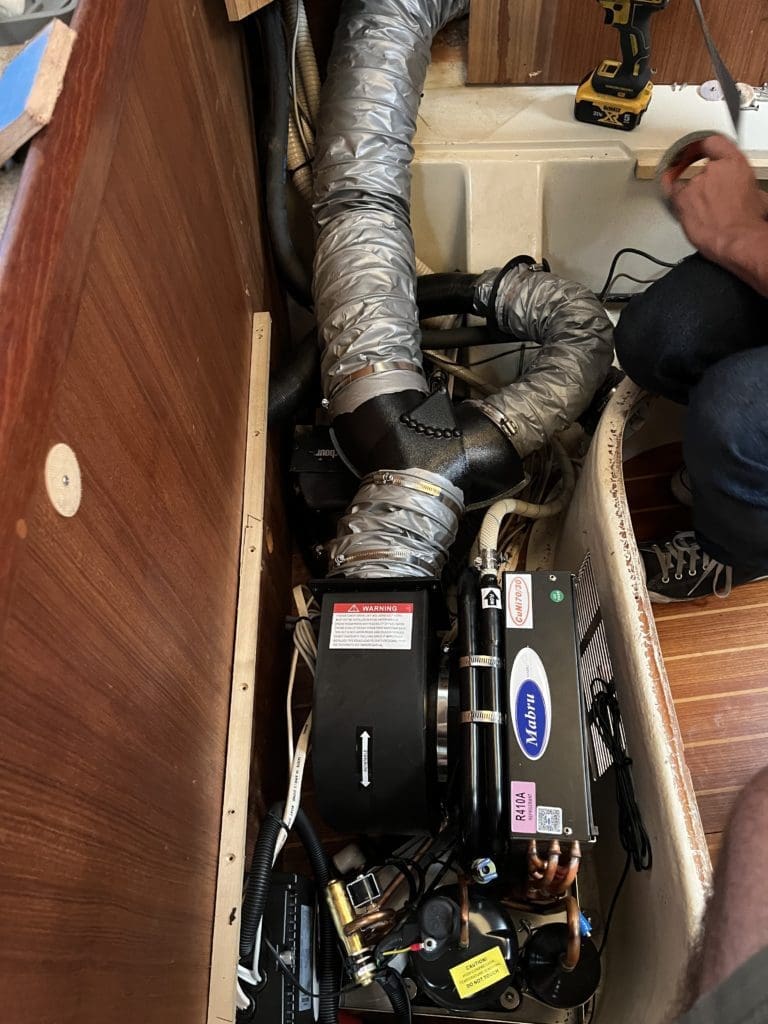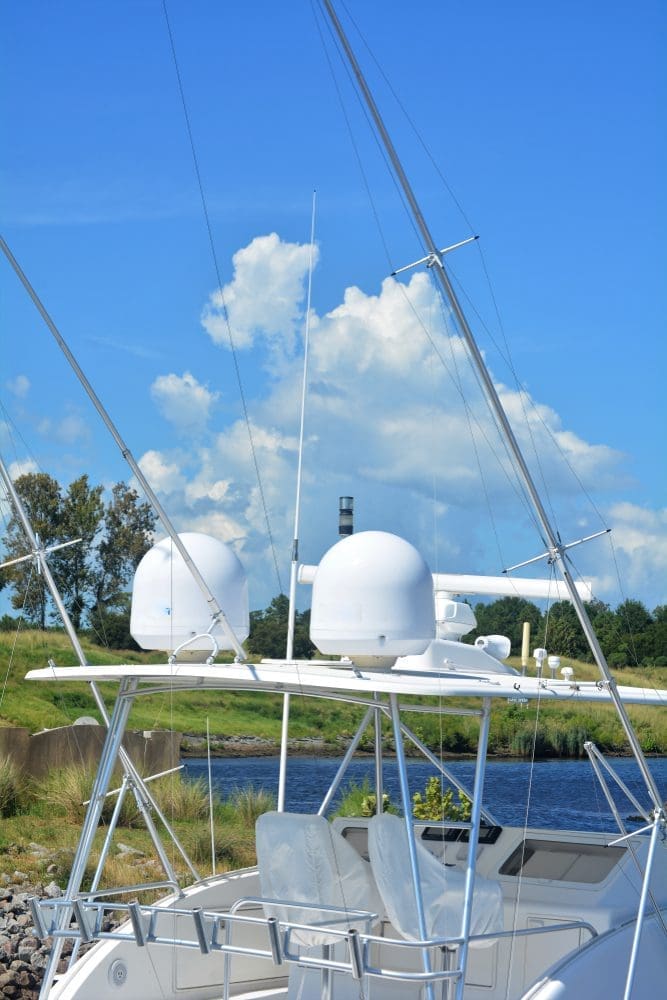Types of Marine Air Conditioners
Boat Air Conditioning Options
Boat Hatch Air Conditioners
With rising energy costs, boat owners are looking for low-cost alternatives to power their vessel. One such option is the boat hatch air conditioner which promises to provide a cost-effective way to cool the cabin. However, while this may seem like an ideal choice on paper, there are drawbacks that need to be taken into consideration - namely its noise level and lack of power when compared with other cooling options available on the market today.

Hatch air conditioning units function like window air conditioners in homes. They use the compression and evaporation cycle of refrigerant to cool the air. They use outside air to cool the compressed refrigerant. As a result, they generate a lot of heat on deck near the units.
Portable Air Conditioners
Portable air conditioners have been known to provide a much-needed cooling solution for many people in their homes, boats, and even RVs. They can be easily set up in any area and are generally less expensive than permanent centralized air conditioning units. However, with the added convenience comes the drawback of lower efficiency and not being suitable for long-term use in marine environments.
Most portable air conditioning units are air cooled and have to push the heat from the compression cycle into the nearby outside air. Because they tend to have less outside surface area than similar hatch units, they're often less energy efficient.
Marine Air Conditioner Split Systems
Split systems are the preferred cooling solutions for large boats, offering an efficient solution that requires less maintenance than other traditional cooling options. However, these systems come with a few drawbacks; they require a lot of space and can be quite expensive to install due to their complexity. Additionally, split systems are prone to refrigerant leak, leading to an increase in water waste and decreased efficiency in the long run.
Considering these factors, it is important for boat owners to weigh carefully their decision when it comes to choosing the right cooling system for their vessel.
Split systems separate the compression and evaporation cycles into separate locations. The compressor typically resides in the engine room while the air handlers and evaporators reside closer to the ducts and air returns. This is very energy efficient, but means that coolant needs to be routed throughout the vessel.
Self Contained Marine Air Conditioners
Self contained HVAC systems offer an excellent balance of high efficiency and space savings, making them ideal for boats of all sizes. These marine water cooled air conditioning units are space efficient and energy efficient. What's more, these systems typically also function as heat pumps, allowing boaters to extend their boating season well into colder months.
Self Contained boat AC units, like Marinaire and Mabru (our preferred suppliers), act like geothermal heat pumps by using the "unlimited" supply of seawater for the efficiency of water cooling. They also are much more compact than Split Systems. Self contained heating and cooling units are more complex to install than hatch units, but usually much easier than split systems.
BoatAC net is very experienced at replacing older marine air split systems with self contained ac and heating units. The newer self contained unit HVAC systems are actually quieter in many cases than the older air handling units. And, the heat pump functions are much more efficient than traditional electric heat while still allowing for quiet operation.
Self contained heat and air conditioner units require very little maintenance despite their high efficiency. And, many come as 12v HVAC units - to run quietly off batteries on your boat.






